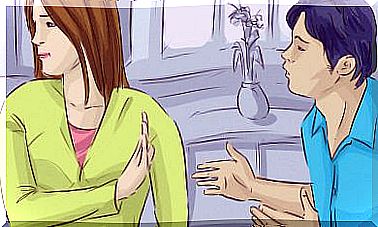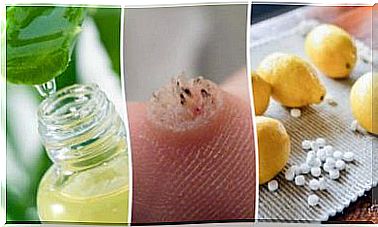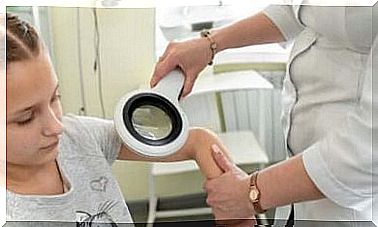Atopic Dermatitis: Everything You Need To Know
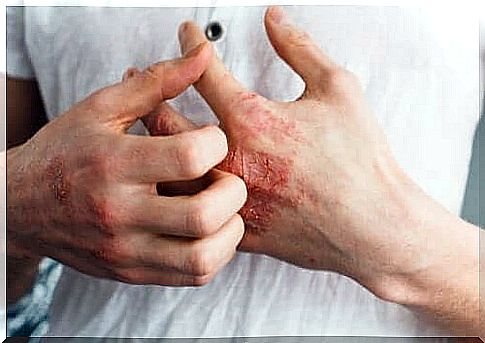
Atopic dermatitis is a skin disorder that causes redness and itching. It is more common in children but can occur at any age. Typically, it is a long-lasting or chronic condition, but it can go through long periods of remission and then suddenly explode again.
It is thought that this disorder currently affects about 20% of children worldwide. Although it is more common in the developed countries of the northern hemisphere, it is widespread everywhere. 3-5% of children with atopic dermatitis continue to suffer from this disorder even in adulthood.
The incidence of this pathology increases every year and this is due to the effects of environmental pollution and the inadequate lifestyle, in which stress and lack of sleep predominate. A cure for this skin disorder has not yet been found, but today it is being thoroughly researched by many research groups.
Description of atopic dermatitis

Atopic dermatitis, also known as atopic eczema, is a disorder that occurs with redness and itching of the affected area. It is characterized by noticeable dryness, which causes the skin to flake and become irritated, causing an annoying itch. Sometimes even small watery blisters may appear. We can classify atopic dermatitis into 3 groups:
- Neonatal. It begins to appear around 5 months of age and mainly affects the face, with the exception of the mouth, nose and eye area. In some cases, it also appears on the scalp, ears, and back of the hands. The itching is constant.
- Infantile. It appears around 2 years and lasts until 7, or until puberty. It occurs mainly in the elbows and knees, although it can affect any part of the body.
- Of the adult. In this case, the dermatitis appears after puberty and takes the appearance of plaques on the skin, usually accompanied by abrasions. It mainly affects the back of the hands, the wrist flexion area, legs and feet.
Causes of atopic dermatitis
Medicine has not yet unambiguously determined the causes of this pathology. It is clear that there are several factors that can affect the onset of the disease and its severity. These factors are:
- Genetics. Currently, the main cause of atopic dermatitis is thought to be a genetic predisposition. Children of parents who have suffered from hay fever or some other allergy are more likely to develop the disease. Atopic dermatitis also often appears in people with food or other allergies.
- Age of the mother. It has been observed that the older the mother is at the time of delivery, the more likely she is to develop atopic dermatitis.
- Environmental factors. Atopic dermatitis affects more frequently the populations of the most polluted cities, and with cold climates. It is also common in places where you smoke a lot or where there is a lot of dust.
- It has been found that stress and insomnia are also triggers of the disease. Sweating appears to play an important role in this, as does the use of wool or nylon clothing.
Symptoms and Diagnosis
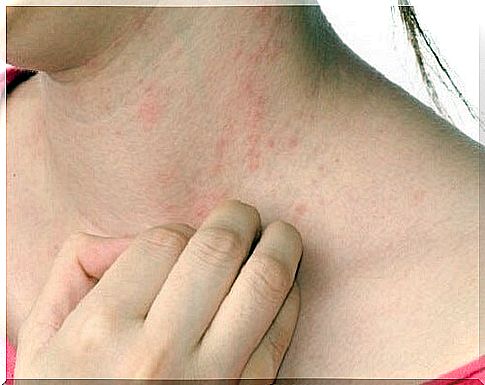
The main symptom of atopic dermatitis is represented by skin lesions with an exudative, crusty and red appearance. They are accompanied by very intense and prolonged itching. Often this disorder harms the emotional stability of the person, precisely because of the continuous itching.
In infants, the lesions are typically vesicular and exudative. In children, however, the skin appears thickened and dry. Also in adults this extreme dryness is observed, accompanied by redness or, on the contrary, by a depigmentation, both very evident.
Those who suffer from this disorder in a prolonged way run a greater risk of suffering cataracts, between the ages of 20 and 30, even if science has not yet discovered the relationship between the two. People are also more likely to develop herpetic eczema if they contract the Herpes simplex virus.
The diagnosis of atopic dermatitis is made through the simple observation of the lesions. An examination of the skin and the patient’s medical history are usually sufficient. In some cases, a patch test may be performed, but laboratory tests are very rarely required.
Do you notice the symptoms of atopic dermatitis? Consult your trusted dermatologist as soon as possible. The specialist will make a diagnosis and prescribe the most suitable treatment.
